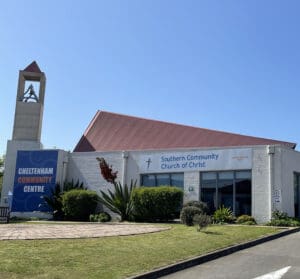Since the recent pandemic, many have wrestled with what shifts are needed to create inspiring and successful churches. Some have asked, for example, whether services need to change, but also whether we need to offer services at all. The danger of deconstruction can be that what remains inadvertently becomes less fruitful than ever (and sometimes this is a function of the leadership resources available). Reverting to tried and true forms, though, is not necessarily a reversion to ones that work.
If our mission concerns disciple-making, then the features of growing churches described in Acts 2:42-47 will ideally be present to facilitate this outcome. The text contains some radical proposals, though, ones which might help redefine the package we offer, making our contemporary Christian churches less preoccupied with tensions that miss the mark, such as balancing old styles versus new.
One confronting element in the Acts text might be the outworking of ‘signs and wonders,’ such as the kinds of miracles and healings routinely evident in the early church.
Too often, we identify gifts such as healing and miracles as optional extras, or as special abilities, based on a reading of 1 Corinthians 12-14 that forgets the context – church services. The gifts were restricted to a limited operation within churches only to promote decent orderliness, while otherwise being encouraged (1 Cor. 14:39-40).
The problem today is that these gifts are minimally exercised in many churches. Most people are open to supernatural healing, but don’t personally exercise the gift with confidence or regularity. It is not intentionally developed, or even sought (as encouraged in 1 Cor. 12:31 and 14:1). How can we conclude we don’t have a gift we haven’t cultivated?
Why not reach out to others experienced in such areas to seek fresh approaches to leading services that incorporate such gifts?
Naturally, it is not for anyone to determine what worship styles and priorities should look like for others, but do we willingly enter the vulnerable and threatening place in which we lead our people to encounter God? Might we not reasonably want people to be ‘filled with awe,’ too, through an experience of gifts (Acts 2:43) that then sees people added to the church (Acts 2:47)?
If ‘signs and wonders’ were the hallmarks of apostleship (2 Cor. 12:12), then this offers a challenge to any such leaders of churches today who typically focus their efforts more on preaching and pastoral care.
Praying for the sick in faith that they would be well still needs a theology of suffering and acceptance of God’s sovereignty. However, the balance also surely needs to trend toward confident and faith-filled expectation that Jesus who came to bring healing (Matt. 8:16-17) now passes the capacity to minister that healing to people just like us.


